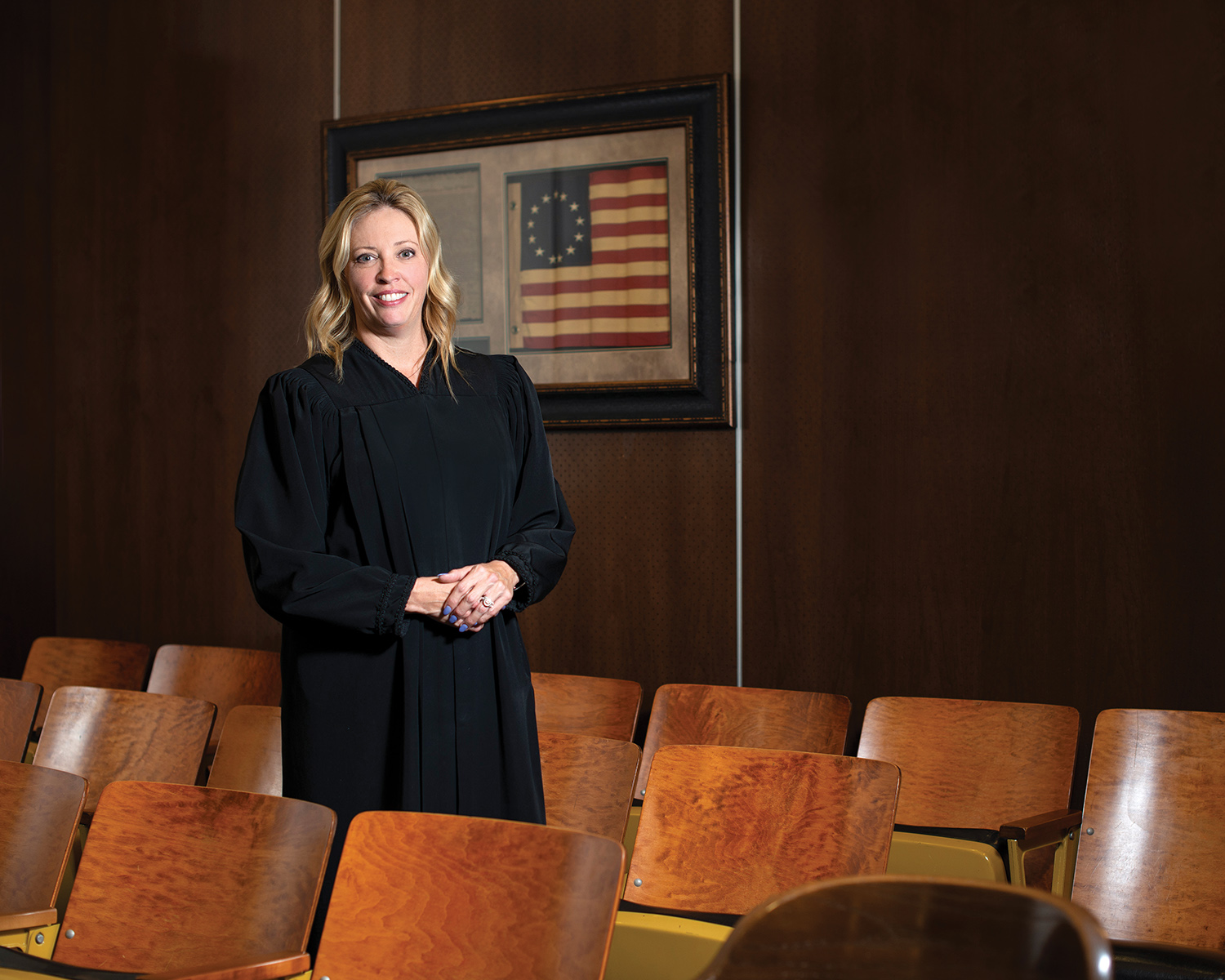
Receiving a jury duty summons can be frustrating: You might have to miss work, pay for childcare, and sit in a room with strangers, all while having no idea how long you’ll be away. Although honoring your civic duty might be an interesting experience—jurors get to listen to witnesses, see scientific evidence, and learn about subjects they wouldn’t otherwise be exposed to—chances are, your first thought will be to get out of it.
“I don’t see the crazy dresses and theatrics; I really just see people with an attitude, and I try to be as kind to them as the people who are pleasant,” says Terri Flynn-Peister, the central felony trial panel judge in the Orange County Superior Court. “You also get some of those people who will be in the jury box and say, ‘I’m so nervous but I’m really excited; I really want to do this.’ I just find them adorable.”
The courts receive information from the California DMV, the Orange County Registrar of Voters, and the Franchise Tax Board to send out summonses at random. Previously, prospective jurors would have to sit in a room every day for a week waiting to be called. In recent years, only one day of service is required, and prospective jurors can call in ahead of time to see if they’re needed. In addition, compensation for jurors now mileage to and from the courthouse. “We’re really not trying to make it hard on anybody,” Flynn-Peister says. “(We recognize) that every single person who comes to court to serve their jury duty is in some way being inconvenienced. I have personally had jurors reach out to me and write about how amazing my staff is and how kind they were—they got extra chairs because somebody had a broken foot.”
If a prospective juror is called into a courtroom and subsequently into a jury box, they’ll go through a process called voir dire, Latin for “speak the truth.” The judge will ask if there are any biases that might overshadow a juror’s ability to listen to evidence fairly and will give a brief overview of the case. The average trial lasts about three days, but for lengthier ones, jurors can be diverted to a shorter trial or excused from that panel if they can’t commit.
Another possible perk of being on a jury? Flynn-Peister often sees jurors become friends. “I had one juror who made flower pens for all the jurors,” she says. “I would look over in the middle of the trial and just see all these flowers bobbing because the jury was taking notes. It restores your faith in humanity.”
